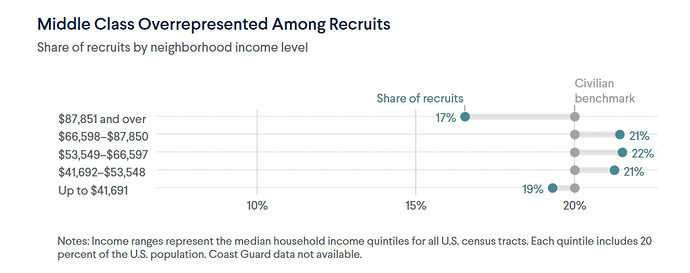Back in the early 90s in Ohio, “knowing your congressman” was a little different than it is now. They actually showed up to local shit all the time. So I wouldn’t say we were buddies, but I had met him before. When I got my nomination, I didn’t have anyone call him and mention me or anything like that, especially since my parents and all their friends were Democrats, and he was a Republican…yuck. I just went through the process. We were firmly middle class…And I would say at the time I was in high school, in the lower half of incomes.
I decided I wanted to go to the Air Force Academy, so my parents scraped and I got scholarships to go to a private high school in Cincinnati, because our hometown public school was shit, with no AP classes and very limited extracurricular options…both of which were necessary to compete for a service academy spot.
Every member of congress and senator has their own process to choose their service academy nominees, and each one is limited to 5 per year per service academy. All I did was apply to both my senators and my congressman, and worked my ass off in HS. I didn’t date or party, I studied and did drama club, edited the school newspaper, show choir, orchestra, cross country, swimming, and track, as many AP courses as I could take, volunteered at a nursing home, etc, all to build my resume to get into USAFA.
All of this also helped me secure a 4-year ROTC scholarship, which is a full ride to any college that has a ROTC detachment. So I also applied to several civilian schools as backup.
The people who can pay for college don’t apply for ROTC scholarships, so even the officers in the military tend to come from slightly more humble backgrounds than the children of millionaires.
In WWII and earlier, it was totally about class. Your Harvard and Yale grads were the officers, because it was the way of things. Nowadays it’s different, and no one from Harvard or Yale joins the military. There are always exceptions, like he who shall not be named without drawing the spite of this entire forum, but it’s no longer the rule that the upper class are the officers.
I forgot to mention, my nomination to USAFA was given by none other than John Boehner
